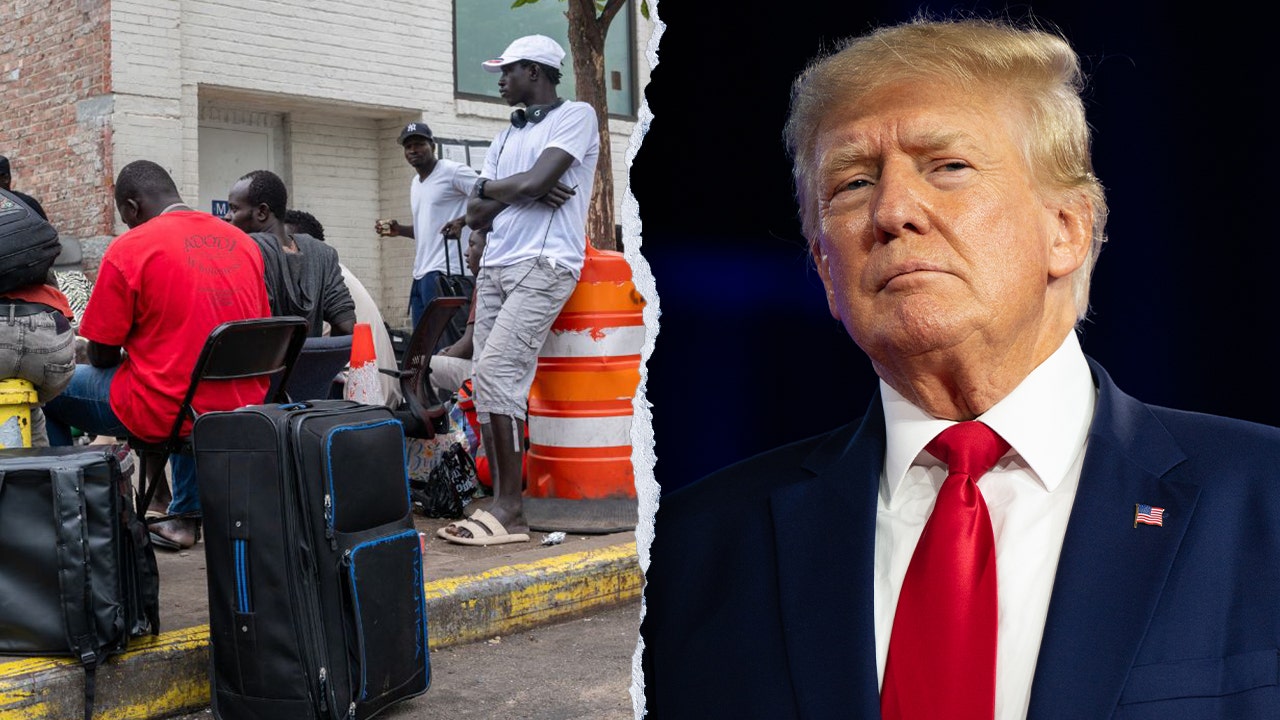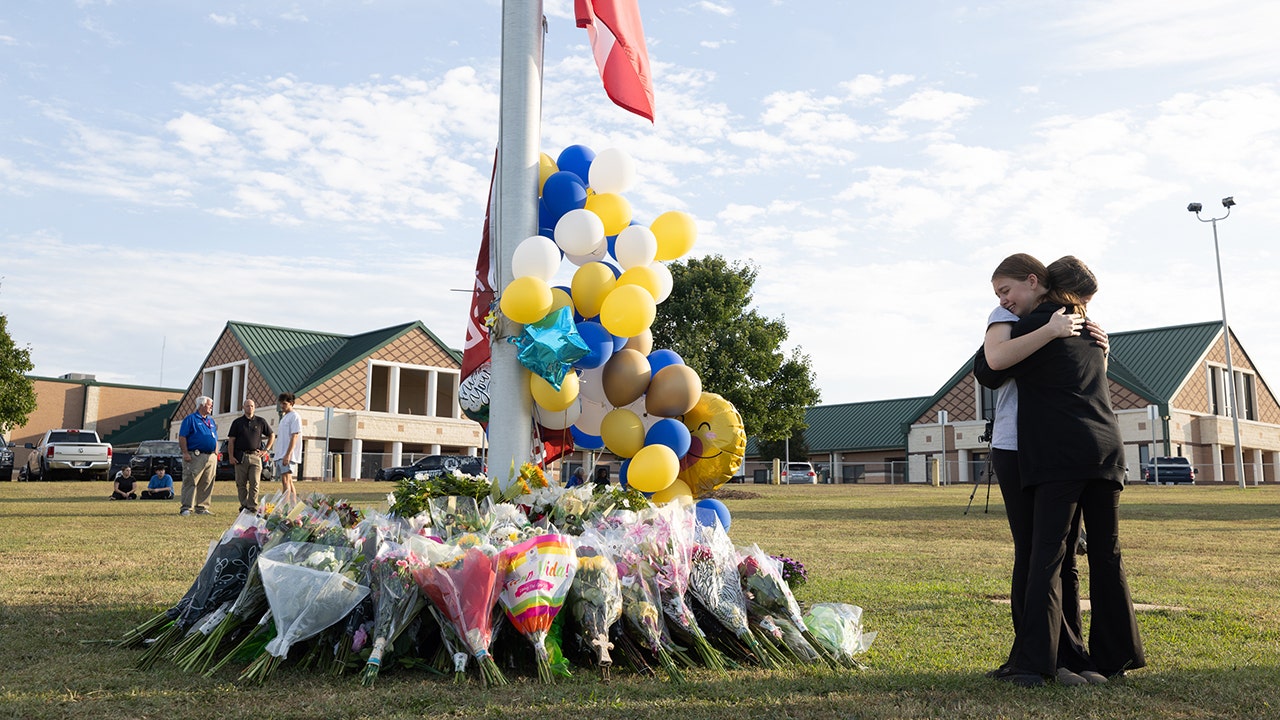In the crowded race to succeed the late Senator Dianne Feinstein of California, Steve Garvey stands out both for his celebrity and for how little he has actually campaigned.
At community forums, the former baseball star turned pitchman has been a serial no-show. After televised debates, he has fled reporters waiting in the spin room. The 75-year-old Republican, a political novice, has raised only a sliver of the tens of millions of dollars needed to win a statewide race in California.
Yet with only two weeks left until the March 5 primary, Mr. Garvey stands to win one of two November runoff spots despite facing three experienced Democratic members of Congress and a host of other contenders.
While Representative Adam Schiff has widened his overall lead, polls suggest that Mr. Garvey could beat Representative Katie Porter for second place in California’s unusual “jungle” primary.
In a state so vast that 22 million voters participated in the last presidential election, name recognition can still overcome political inexperience and a lack of money. Even if that name was largely made playing baseball four decades ago.
And in a strategic move that has become common in California, Mr. Schiff has perhaps done more to help Mr. Garvey than Mr. Garvey himself. The leading Democrat has spent $10 million on ads that ostensibly attack Mr. Garvey as “too conservative for California” but that have the likely effect of rallying a critical mass of Republican voters to his side. The result has been an improbable disruption of a contest that was expected to be dominated by two Democratic members of Congress.
Now Mr. Garvey has become a candidate to watch, despite his party representing less than a quarter of California’s electorate and his having little to no chance of winning a statewide general election. With that success has come scrutiny.
News articles have resurrected the scandal-fraught years after Mr. Garvey’s career with the Los Angeles Dodgers and the San Diego Padres ended; Californians are revisiting the bitter divorce and multiple romances in the late 1980s that made him the punchline of T-shirts and bumper stickers. (“Honk if You’re Carrying Steve Garvey’s Baby” was once a California favorite.) This month, three of his seven children detailed their estrangement from him to The Los Angeles Times.
On a recent Saturday, days after voters began receiving their mail ballots, Mr. Schiff laid siege to the Super Bowl weekend airways while two other candidates, Ms. Porter and Representative Barbara Lee, stumped at Lunar New Year festivals and schmoozed with young Black Democrats in Los Angeles County.
Mr. Garvey was mostly at home after making an appearance at a local charity bike race near his Palm Desert ranch house. Checking his mail in slacks and a sweater outside “Casa de Garvey,” where a huge red, white and blue “Steve Garvey for U.S. Senate” banner fluttered from the wrought-iron front gate, he observed with a smile and a rueful shrug that he was engaged “in arguably the most difficult race in America.”
Then he headed back up his driveway, responding to one follow-up question.
How was the campaign going? “Great!”
It is not clear what convinced Mr. Garvey to leave his post-baseball life as a celebrity pitchman and run for the Senate. Thus far, he has resisted calls for detailed policy positions, saying that he will study the issues further if he makes it past the primary election. A media tour consisted mostly of visits to homeless encampments and the California-Mexico border, and lasted for about two days.
Mr. Garvey has said he was approached early last year and became convinced that he could improve civil discourse. “I never played for Democrats or Republicans or independents,” he said in a video when he launched his campaign. “I played for all of you.”
Jessica Millan Patterson, the California Republican Party chairwoman, said in a statement that “his potential advancement to the general election would not only serve as a boost to all Republicans on the November ballot, but also give California Republicans their best chance in years to pick up a Senate seat.”
At the most recent televised debate, held last week in San Francisco, Mr. Garvey appeared slightly more prepared than he did last month at the first televised face-off.
He advocated closing the U.S.-Mexico border, opposed further increases in the minimum wage and reiterated that he supported Israel over Hamas “yesterday, today and tomorrow.” But after blaming state laws for driving up housing costs in California, he was unable to pinpoint a single regulation, or say exactly what he would change.
“He’s not ready for prime time,” said Mike Madrid, a longtime Republican strategist who suggested that Mr. Garvey had been lured into the race by consultants and party leaders. “This is just an attempt to get someone with name recognition to carry the Republican banner down the field under heavy machine gun fire, and everyone knows it.”
If Mr. Garvey survives to November, Ms. Porter may have the biggest grievance.
For months, political experts believed that a November runoff between Mr. Schiff and Ms. Porter was the likeliest outcome. Ms. Lee, of Oakland, is beloved by progressive Democrats, but she has raised less money and is consistently fourth in polls.
Approved by voters in 2010 to address partisan gridlock, California’s unusual “jungle” election system throws all candidates into one primary and then sends the top two candidates to a November runoff, regardless of party. Twice since then, California has had two Democrats — and no Republicans — in the November general election for Senate.
Mr. Schiff, 63, was the impeachment manager during former President Donald J. Trump’s first trial, and has been endorsed by former House Speaker Nancy Pelosi. Ms. Porter, 50, a former law professor, has earned national prominence for her combative congressional grillings of Trump administration officials and Wall Street financiers.
Were Ms. Porter to make it past the primary, she might stand a better chance in a head-to-head general election against Mr. Schiff in November. Though she is liberal, she has appealed to enough crossover voters in the past to represent a battleground area in Orange County. Women, including those supporting Ms. Lee, might flock to her, while Republicans could hold Mr. Schiff’s impeachment duties against him.
If Republicans see in Mr. Garvey a celebrity who can drive turnout, Mr. Schiff may see a perfect foil. Facing Mr. Garvey in the general election would all but assure Mr. Schiff a win, given how Democratic and polarized the state is. It was thus little surprise that Mr. Schiff ran ads that elevated the Republican’s profile.
It’s a gambit that Democratic front-runners have employed with increasing frequency as their majority has widened in California: Consolidate the state’s conservatives behind one Republican on the primary ballot and then cruise to victory in the runoff.
Mr. Schiff says the spots merely contrast the leading candidates from both parties. But Ms. Porter and other critics call the gambit cynical and undemocratic.
“I think voters should choose the candidates,” Ms. Porter said. “Not the other way around.” (Fighting fire with fire, Ms. Porter recently bought online ads of her own that tried to convince California conservatives that a lesser-known Republican on the ballot, Eric Early, was “the real Republican threat.”)
Campaign finance reports showed that Mr. Garvey had raised about $600,000 by the end of December, largely from Republican retirees in Southern California, and had spent more than $100,000 on consulting services.
By comparison, Mr. Schiff had raised more than $35 million, Ms. Porter more than $13.2 million and Ms. Lee more than $1 million.
Already, heightened scrutiny has laid bare Mr. Garvey’s family situation.
“Happy birthday 6! I love you so much,” Olivia Garvey, one of his three children with his current wife, Candace Garvey, posted on X in December, calling him by his baseball uniform number. Tributes to his long marriage bedeck his social media feeds.
Less visible are the two daughters Mr. Garvey had with his first wife and the two children he had in 1989 with other romantic partners. A daughter from his first marriage, Krisha Garvey, now 49 and based in Los Angeles, said in an interview that Mr. Garvey had abruptly cut ties to her 15 years ago and only reconnected last fall, to let her know he was beginning a Senate campaign.
In a statement, the two children born in 1989 to women Mr. Garvey was then simultaneously involved with — Slade Mendenhall, 34, who lives in Atlanta; and Ashleigh Young, 35, who lives in Japan — said that they could “say nothing from personal acquaintance with Steve Garvey as we have none.”
“In our childhoods,” they wrote, “multiple efforts were made through attorneys to arrange a meeting or even a phone call with Mr. Garvey, but he declined every opportunity.”
On his block, where Mr. Garvey’s banner was the only political yard sign, neighbors of both parties described him as down-to-earth and friendly, and doubted that his family issues would sway voters.
“America is a very forgiving country,” said Gus Shouse, 58, an electrical contractor and fellow Republican who lives down the street and has done some work for the Garveys. “We all fail. We all fall.”
“He’s very nice, she’s very nice, but we’re Democrats — we’re not going to vote for him,” said Brian Blatchley, 67, a retired event planner who was out for a walk with his husband, Fredy Gerber, 68, a retired sommelier. They had voted for Ms. Porter, they said.
Mr. Garvey’s communications adviser, Matt Shupe, declined to make him available for further comment, saying that The New York Times had “crossed a line” by having an impromptu conversation at Mr. Garvey’s mailbox.
In his statement to The Los Angeles Times, Mr. Garvey said that “the challenges I faced after retiring from Major League Baseball four decades ago were pivotal in shaping the person I am,” and that his 35-year marriage “demonstrates my growth and commitment to family values.”
Political analysts suggest that Mr. Garvey will face larger concerns should he make it to the general election.
“Garvey’s got three strikes against him,” said David Townsend, a Sacramento-based Democratic campaign consultant. “One, he’s a Republican in California. Two, he’s got no money. And three, he was a Dodger. Which means he’s hated by the whole San Francisco Giants half of the state.”






